Iran: An Overview of Classical and Popular Musical Developments
Sat 26 October 2013, 11am - 1pm
Free. Please note: booking for this event has now closed but tickets will be available on the door.
The Mosaic Rooms
Tower House,
226 Cromwell Road
London SW5 0SW
Organised by The Nour Festival and Roya Arab in partnership with Inside Out Festival
Hosted by the Mosaic Rooms
Supported by Iran heritage Foundation
Refreshments will be provided.
A panel of specialists will discuss various elements of musical development in Iran over the past century. The panel will be chaired by Roya Arab, archaeologist and musician, Honorary Research Assistant, Institute of Archaeology, University College London.
Persian Music from the Earliest Days to the Mid-20th Century
Jane Lewisohn will provide a general overview of the historical role music has played in Persian society from the earliest days up to the 1979 Iranian revolution, with a special emphasis on the place of female performers.
Jane Lewisohn is a research associate at SOAS, University of London, Music Department and Research Fellow at IAIS, University of Exeter, UK, and has been active in various aspects of Persian and Persianate studies for the past thirty years. She is currently director of the Golha Project.
Looking at Socio- Cultural Situation of Iran through Music: An Overview
Malihe Maghazei will discuss the formation of a multi-genre conscious music in Iran over the past couple of decades and explore how cultural tools including music, art and literature have been used to express social criticism and to challenge the political establishment in Iran. Like in other places this is not a new phenomenon and in Iran started during the Constitutional Revolution of 1905.
Dr Malihe Maghazei is originally from Iran. She is historian of the Middle East with focus on gender. Her other interests include youth, music, literature and film. Currently, she is research fellow at the Middle East Centre, London School of Economic and Political Science, working on the New Trend of Intellectuals in Iran.
Beyond the Radif: New Forms of Improvisational Practice in Iranian Music
Dr Laudan Nooshin’s paper explores new challenges to established classical forms. Iranian classical music over the past century has been largely based on a repertoire known as radif, which by the 1960s was linked with newly emerging discourses of ‘authenticity’ and ‘purity’. To work outside it today, is to work outside the tradition. There have been recent challengers, Dr Nooshin asks what their music tells us about the possible future direction of creative practice in Iranian classical music.
Laudan Nooshin is Senior Lecturer in Ethnomusicology at City University London. Her research interests include creative processes in Iranian music; music and youth culture in Iran; music and gender; neo/post-colonialism and Orientalism; and music in Iranian cinema.
Main image: Golestan Palace Tehran/Iran Ceramic wall tiles (image taken by Roya Arab)














